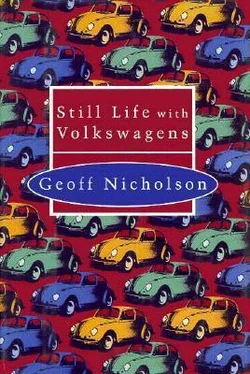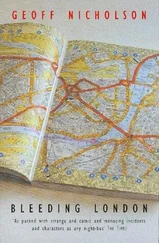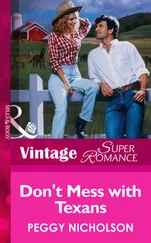In Tideswell, in Derbyshire, a young couple — he’s a rep for a kitchen equipment company, she’s an aerobics instructor — are being shown round by the owner of a detached, three-bedroomed, stone-built property. He admires the original sash windows and the spacious breakfasting kitchen. She is less sure about the whisper-peach bathroom suite. He asks how big the garage is. The owner says it’s plenty big enough for his grey, 1976 Volkswagen Beetle. A moment later he has neither Beetle nor garage.
A traffic warden born in Bombay some forty-five years ago, who knows six languages including conversational Maltese, spots a rusty, cream-coloured Beetle parked on a double yellow line outside a chemist’s in St Albans. He assumes the owner, probably young, probably not well off, possibly collecting a prescription, won’t be parked for long, so he decides not to issue a parking ticket and he continues on his round. When he gets to the street corner he thinks again, wonders if the car’s still there, and decides that if it is he’ll go back and give it a ticket after all. When he turns to look, he sees the Beetle burning brightly as a bonfire.
In Central London, Mal and Becky have decided to take the plunge and go to a fetish party in a subterranean nightclub in a dark street not far from Tottenham Court Road. They’re lucky enough to find a spot nearby where they can park their white, 1970, Karmann-bodied Beetle convertible, and they enjoy an evening at the club which, although undeniably unique, is perhaps a little less wild than they were expecting. It’s two in the morning when they return to their car. It is, of course, a black, smouldering hulk. They wonder if any taxi drivers will stop at this time of night to pick up two people dressed head to foot in black rubber bondage gear.
♦
And so Barry Osgathorpe, now styling himself as Ishmael, begins a new journey into Vastness. The first few hundred miles are a peculiar blend of the nostalgic and the alien. There is something strange about the car and the roads, the feel of driving, the idea of movement, and yet there is something utterly familiar. The sensations are not brand new and yet it has been so long since he experienced them that they arrive fresh and revitalised.
But gradually he gets accustomed to the sensations and they become increasingly pleasurable. The adrenalin starts to flow and he feels the old excitement. He feels the G forces, the acceleration, the electrical impulses moving rapidly through the spinal cord, the increase in muscle tone. He feels alert and in control. Sometimes he even feels like his old self.
He tries to apply understanding and self-discipline as he drives, and on occasions this leads to a very welcome sense of ease and tranquillity. Sometimes the driving is like a form of meditation. There is Mindfulness and detachment, an absence of desire, an end to craving.
Some things have definitely changed in the years since Ishmael was last on the road. There seems to be more of everything: more vehicles, more roadworks, more service areas, more speed restrictions. The traffic patterns have changed. The cars all look so sporty, so futuristic, so Japanese; and they all run on unleaded petrol. (Barry can’t actually use unleaded fuel in Enlightenment since it would damage the valves of his old Volkswagen engine, but that’s not the point.)
In the lobbies of the motorway services where there used to be kids playing violent and destructive video games, there are now machines that will print business cards for you. Barry supposes this is progress of a sort, though he wonders what kind of businessman gets halfway down the motorway and suddenly decides he needs a new set of business cards.
On the motorways he doesn’t see too many Beetles. That’s understandable. They may have been designed for Hitler’s autobahns but they aren’t quite up to the cut and thrust, the sudden accelerations and brakings of modern English motorway driving. But off the motorways, in the heart of England, he’s pleased to see there are still plenty of them, more than ever it seems, in all their forms and in all conditions.
He looks hard at people as they drive their cars, and whereas, if he believed Phelan, he might expect to find faces taut with mania or tension or aggression, in fact he sees ordinary people going about their ordinary business. They are insulated from the outside world. They are perhaps a little inert, a little weary from the strain of concentration but in the main he sees — and this would once have been a most unwelcome surprise — people just like him. In fact there are times when he feels a powerful sense of unity with his fellow human beings. He likes that.
As he travels he sees a few acts of driving insanity, some dangerous breaking of the speed limits, some vicious cutting up, the occasional act of suicidal overtaking, but chiefly he is struck by the enormous good sense of it all. For all the dangers and risks, the frustrations and competing needs of driving, the cars continue to move, the traffic continues to flow. People do, sooner or later, get where they want to go. Sometimes Barry admires and envies other drivers since they have specific destinations and itineraries whereas he has very little idea at all where he’s going. Not that he minds. He’s on a quest, not a motoring holiday. He has a goal, of course, to find Charles Lederer; but that is something quite different from simply having a destination.
He scans the faces of the hitchhikers waiting on motorway sliproads. He surveys the customers eating in the cafes and fast food outlets and motorway cafeterias. He stands in car parks and shopping malls and city streets and he looks around him knowing that one day he will turn and face Charles Lederer. He knows it is a strange search, a strange process by which the two of them will be delivered to each other, two random particles whose paths must eventually cross, but somehow he knows it will happen.
He no longer expects life to be easy or logical, yet it is still odd to think that whereas he once travelled along these roads looking for eternal verities, he is now simply looking for a strange, disturbed old man who blows up Volkswagens. Well, why not? Times change. The world moves on. You have to go with the traffic flow.
At first he listens to a lot of radio, to the phone-ins and the traffic news and the shipping forecasts, the chart shows and the consumer advice programmes, but after a while he gets bored. It all starts to sound like static, like interference or white noise. He decides to keep the radio turned off and to listen to his own internal sound.
He sees the dead bugs on the windscreen and wonders how a true Zen follower could ever be a motorist. If you believe in reincarnation then every time you drive along the motorway you have no choice but to slaughter hundreds of your ancestors. He tries not to let this bother him. He drives on. He obeys the laws. He sees the signs. He negotiates accident black spots and bottle necks and blind corners. He deals with contraflow systems and sleeping policemen. He pays and displays, he waits here when red light shows, he gives way to oncoming traffic in the middle of the road.
Occasionally he talks to people; to waitresses in caffs, to cashiers in petrol stations, to fellow travellers, but he tries to keep these conversations brief and not to the point. He now knows the value of brevity and superficiality. Where once he might have talked about inner wisdom and the Way, he now prefers to talk about the weather or the price of petrol. This is not because he has abandoned his search for truth and wisdom, but rather because he now knows that these apparently banal conversations contain just as much wisdom as any discussion about God or the meaning of life. He knows that the world can be seen in a grain of sand, so why shouldn’t it also be found in a traffic cone or in a couple of litres of overpriced four star? He never asks people to share their personal philosophies with him. And neither does he ever ask anyone if they’ve seen Charles Lederer. He’s on a search but it’s not that kind of search.
Читать дальше












